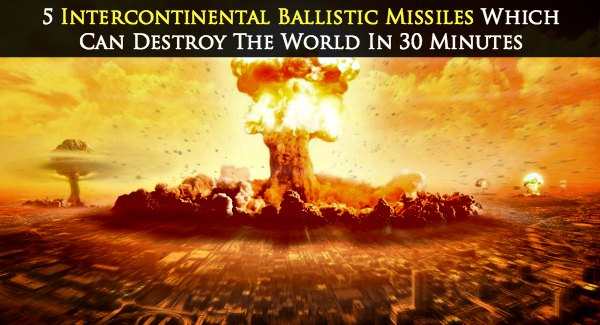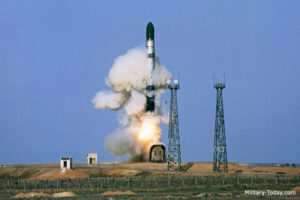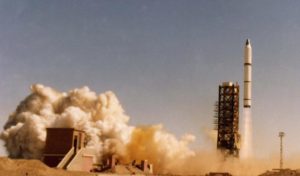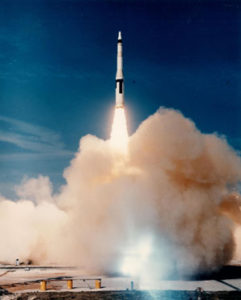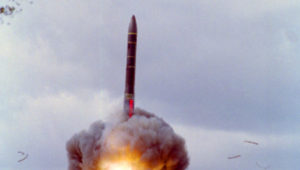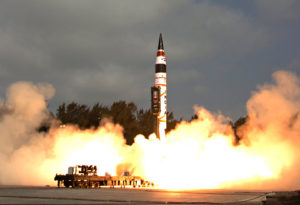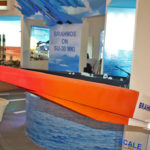Missile technology is one important armour that every country wants to have, ICBM or intercontinental ballistic missile are those missiles which can strike an enemy from a long distance with huge devastation. ICBM are heavily powered to wreck havoc in the place they drop. With the rapid change in warfare, ICBM plays a vital role in destroying the enemy before they know what hit them. There was a rapid growth of missile development during the cold war times, USA and Russia remain the front line of the ICBM in the world. However many countries in the recent past have come into the competition including India. Here is few missile which can travel the distance and pack the needed punch:
1.R-36
The Russian-made ballistic missile stands tall when it comes to the ICBM. The missile has a very long range and is test proved to adhere to the theoretical data. The technology used is for space launch vehicles thus making it more potent.The missile uses decoy warhead technology making it hard for defence technologies to track the warhead. This unique feature makes the anti-ballistic defence look weak.
ORIGIN: Russia / USSR
RANGE: 16000 km
SPEED: 23+ MACH
GUIDANCE: Inertial, autonomous
PAYLOAD: 10* 800 kt
2. DF-5
Dongfeng – 5, is yet another reason for the world to fear the Chinese. The highly capable ICBM DF-5 can travel almost around the world strike from on end to another. The missile has a 3-stage separation method. The missile has one drawback that the design is such that fueling is more time consuming than other ICBMs, but once this fuelling is done, it can send a shiver down the enemy’s spine!
ORIGIN: China
RANGE: 12000 – 15000 Km
SPEED: 22 MACH
GUIDANCE: Inertial, onboard computers
PAYLOAD: 4-5 Mt
3. LGM-30 MINUTEMAN
This ICBM is from the world’s most technologically advanced country and is highly reliable as it is tested time and again. It is the only land-based ICBM in the US. As the name suggests the missile has a very short prep time and can be quickly launched. It uses 3 smaller warheads instead of one to defeat the anti-ballistic defence systems.
ORIGIN: United States
RANGE: 13000 Km
SPEED: 23 MACH
GUIDANCE: Inertial, digital computers monitor trajectory
PAYLOAD: 3*170Kt TNT
4. RS-24 YARS
Yet another ICBM of the Russians, tested in 2007 is said to replace the older long range missiles in the Russian arsenal. The thermonuclear weapon is capable of carrying 10 independently targetable warheads.
ORIGIN: Russia
RANGE: 11000 km
SPEED: 20 MACH
GUIDANCE: Inertial with GLONASS ( Russian GPS)
PAYLOAD: 4*550 kt
5. AGNI – V
The indigenously made AGNI V is the latest output of the Indian missile development programme. The Missile was tested in 2012, there are many speculations about the range of the missile, but is said it be around 8000km taking India into the league of elite ICBM nations. The missile is solid- fuelled and is expected to have multiple independently targetable reentry vehicle with each missile capable of carrying 2-10 nuclear warheads.
ORIGIN: India
RANGE: 8000 Km
SPEED: 24 MACH
GUIDANCE: inertial navigation system, GLONASS/ IRNSS augmented
PAYLOAD: 1500kg
ICBM missile totally relies on the earth’s gravity, the trajectory of the missile is very important for them to be accurate. Over the years, ICBMs have been launched from various platforms ie land, road/ mobile, submarine based. The use of these can be devastating and can cripple the enemy such that there is no chance to recover. All the missiles made are almost nuclear capable and thus are even more potent. The development of the ICBM is constant around the world India on the verge of testing Agni VI, which has a longer range and is more potent as it can carry more payload. Even though cruise missile is quicker the ballistic missile is equally potent when we add up the speed and the firepower it carries making it a very important element in the case of a war.

